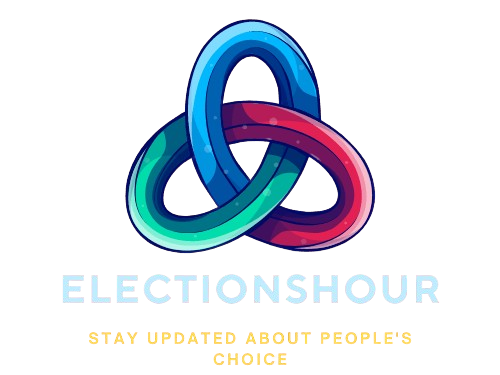Do you know that in the 2008 presidential election, the chance of a vote in California being decisive for the electoral college vote was about one in a billion? This shows how many feel voting is pointless, especially in big states. When I vote, I’m not just picking a candidate. I’m helping choose my state’s electors, who are part of the Electoral College.
With 538 electors needed for a candidate to win, the process seems tough. It’s easy to think the popular vote doesn’t matter, especially when a candidate can win without it. But, my vote can still make a difference. Knowing how voting works helps me see how my vote affects both local and national levels.
One Vote’s Impact on Your Vote
It’s important to know how the Electoral College works. This system can make a candidate win without getting the most votes cast in a 2020 presidential election. This shows how every vote is crucial in Close elections and can hinge on just a few votes cast in key states..
Impact of the Electoral College on Individual Votes
The electoral college can make my vote seem less important. For example, in 2000, George W. Bush won despite Al Gore getting more popular votes. It all came down to 537 votes in Florida, showing how every electoral college vote matters. close elections can be.
Voter turnout varies a lot. In 2020, about 66% of eligible voters cast ballots. This means one-third didn’t vote. Local elections often see even lower turnout, affecting community decisions. Understanding voting statistics shows how my vote can make a difference.
Historical Examples of Close Elections
Looking at past elections helps us understand the system better. The 2016 election is a prime example, where Donald Trump won the electoral college but lost the popular vote by nearly three million. Local elections, like one in Troy, New York in 2017, were decided by just one vote. These examples show how every vote can change things.
In conclusion, my vote has real power, especially in close elections and local races. By understanding the electoral college, I see how crucial it is to vote. Every vote is key to making our democracy work.
The Importance of Participation in Presidential Elections
Participating in presidential elections, like the 2020 presidential election, has a big impact on our local governance and values. When I vote, I’m not just casting a ballot. I’m helping shape my community’s future. Every vote can make a difference, choosing leaders who reflect our community’s needs.
Voices of the Voters: Why Every Vote Counts
Voter turnout is crucial, as shown by a study from Portland State University. Only 15% of eligible voters cast ballots in local elections. This low turnout means our voices are not fully heard. In the 2000 U.S. Presidential election, George W. Bush won Florida by just 537 votes.
If 600 more voters had supported Gore, the outcome could have been different. This shows how vital every vote is, affecting both local and national governance.
Local Elections Matter as Much as Presidential Elections
Local elections affect our daily lives, from education to safety, and the votes cast can determine the outcome. The choices made by local officials greatly impact our neighborhoods. Voter apathy, especially among groups like the Latinx community, is a big issue.
Only 36% of the Latinx community voted in the last presidential election. It’s important to remember that local elections are just as crucial as presidential ones. Voter turnout can change local governments and their policies. For example, after the 15th Amendment in 1869, black men gained the right to vote, allowing them to advocate for their interests.

Conclusion
Reflecting on whether my vote matters, I see it’s more than just my choice. The electoral process shows how important it is for everyone to participate. This collective effort shapes our future.
Looking back at elections like 2000 and 2016, I see how crucial every vote is. When people don’t vote, it can change the outcome. This shows how much impact each of us can have.
Grassroots movements, like those led by Indivisible, teach us about the power of getting involved. They strengthen progressive values and build community. By taking action, we can bring about real change.
This shows how vital it is to vote. Every vote counts, especially when we work together. It’s not just about one election; it’s about being active all the time.
Every time I think about not voting, I remember the importance of my voice. Together, we can make a difference. This commitment is key to creating lasting change in our community and beyond.
FAQ
Here’s an extended FAQ with witty answers for “Understanding the Electoral College: One Vote’s Impact on Your Vote” in HTML format:
1. What’s the Electoral College? A secret society for scholarly voters?
Oh, if only it were that exciting! The Electoral College isn’t a brick-and-mortar institution where electors gather to discuss the merits of candidates over tea and crumpets. It’s actually a process established by the U.S. Constitution for selecting the president and vice president. Think of it as America’s quirky way of saying, “We like democracy, but let’s add a dash of complexity to keep things interesting!” Each state gets a number of electors based on its total count of senators and representatives in Congress. When you cast your vote in a presidential election, you’re actually voting for these electors who then vote for the president on your behalf. It’s like a game of telephone, but with the fate of the nation at stake!
2. Why doesn’t my vote go directly to the presidential candidate I choose?
Ah, wouldn’t that be straightforward if we could just cast our vote directly for the presidency? But where’s the fun in that? The Founding Fathers, in their infinite wisdom (or perhaps after a few too many ales), decided that the average Joe might not be informed enough to directly cast their vote. elect the president. So, they created this middleman called the House of Representatives. Electoral College. When you vote for president, you’re actually telling your state which candidate you want your electors to support. It’s like asking your friend to order pizza for you – you tell them what you want, but there’s always that slight chance they might “accidentally” order pineapple instead of pepperoni. In most states, whoever wins the popular vote gets all the state’s electoral votes. It’s winner-take-all, baby, especially in the context of the presidency!
3. Does my one vote really matter in this convoluted system?
You bet your ballot it does! While it’s true that the Electoral College adds a layer of complexity to the process, your vote is still crucial. Remember, electoral votes are allocated based on how the popular vote


2 thoughts on “Does My Vote in the Presidential Election Matter?”